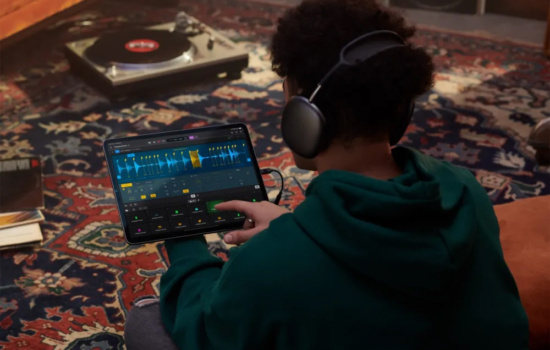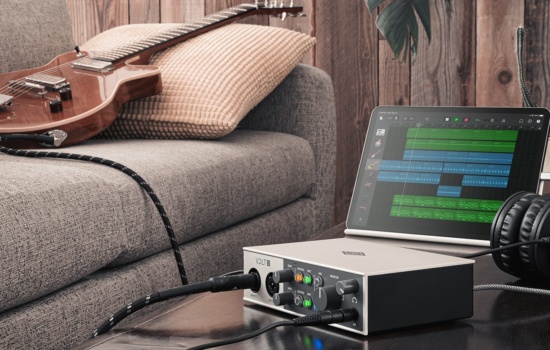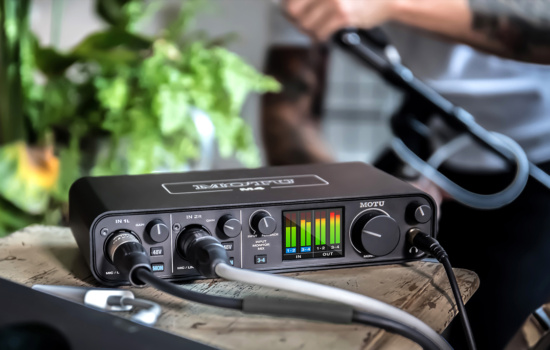District Supervisor of Music
Career Overview
Works with Teachers in a school district to coordinate music education curriculum and activities and ensure learning goals are being met.
Alternate Titles
Music Administrator, Music Supervisor
Avg. Salary
$54,0861
Salary Range
$44K-$65K

How To Become a District Supervisor of Music
Career Description
“The position of the District Supervisor of Music falls under the Curriculum, Assessment and Instruction department here at Buffalo Public Schools,” says administrator James Schwanz.
“I work with and collaborate with other Department Supervisors and Directors. Here at Buffalo, anything outside of what would be considered the core curriculum (science, social studies, math, and ELA), we call Encore, which would be music, art, PE, world languages, and home economics. We fall within the umbrella of curriculum assessment and instruction so we spend a lot of our time working together and addressing significant district needs.”
His position in the district requires time spent in the schools and in the administration offices. He explains, “My contract is for an 8-4 workday. I have a centralized office just outside of downtown Buffalo, New York and all the Supervisors and Directors are at this one location. I supervise eighty-eight Teachers in fifty-six K-12 buildings and the programs are a variety of general music.
“We have instrumental music. We have high school music, in which they can take music theory, music history, and music in our lives. Our performing arts school offers AP theory. Some of our programs offer different things; some schools offer world percussion, some schools offer keyboard. But for the most part, we offer K-8 general music and K-8 instrumental music. In the ninth through 12th grade, we offer general music as well as some instrumental offerings.”
Salary
On average, District Supervisors of Music earn approximately $54,000 annually. The salary range for District Supervisors of Music runs from $44,000 to $65,000.
District Supervisors of Music receive a regular salary with paid time off and benefits. The amount will vary depending on the school district and its budget.
Hey, what do you think about trying our new Music Career HelperMusic Career Helper really quick? It’s totally free and could help get your career moving fast! Give it a try. It’s totally free and you have nothing to lose.
Career Outlook
Although District Supervisors technically work a set eight hour workday, Schwanz explains “when you’re in an administrative role, the lives in your educational environment continue on after those contractual hours. The lives of your Teachers continue on, the lives of your students and community members all continue on past your contractual hours so in a position like this, it’s hard not to be involved twenty-four hours of the day.”
He adds, “I think a major thing in your effectiveness as an administrator is that you’re constantly reflecting and making sure you’re better the next day than you were the day before. A good administrator is constantly reflecting on what they’re doing, what those they work with are doing in their practices and what they can do to be better.
“There are times when our plates and our responsibilities are greater than the 8-4 workday so sometimes it goes home with me but I think the feeling of accomplishing my vision and my responsibilities, even outside of my 8-4 contractual workday, for me is reward enough to put in that extra time.”
“When you see the difference your work and your time outside of your contractual hours are making in the lives of the Teachers, the students, and the community, it’s well worth the extra time.”
Maintaining a solid work-life balance in this position is the key to success both professionally and personally. “What I will say and what I continue to stress is that with the woman I’m working with as an Intern, I always say to her, ‘How are you doing? Are you taking care of yourself?’” Schwanz says.
“It’s extremely important you continue to prioritize your personal and family life. Make sure that, although this position can be very stressful at times, you make sure you have made time for yourself and your family, that you’re taking care of your health and continuing to participate in activities you enjoy outside of the workplace.”
“I play hockey. It’s late at night but I love it. I’ve been playing hockey my entire life. I find it’s a great way for me to reenergize and release stress and tension. Making sure there’s part of my day where I can be physically active definitely helps me to kind of deescalate and release the tension of my workday.”
“It’s very important to do that. As much as you want to maintain a certain standard as a professional, you have to take care of yourself or you will burn out.”
Career Path
Although some music administrators began their career as Music Teachers, others have been on the path towards administration since college. “It has been my experience that most people typically know right away,” Schwanz says, if they want to become administrators. “I have had a handful of Teachers in different departments that I believe have been leaders in their departments and I have encouraged them to go back and get their administrative certification.”
He adds, “My colleagues and many of the colleagues I went through leadership certification with all seemed to just know this was going to be their path. They had that leadership personality about them. They seemed to have a special initiative and drive to lead their building.”
After achieving all the required degrees, an administrator may work their way up to roles as a Dean, Assistant Principal or Principal. After holding a District Supervisor position, they may decide to pursue an opportunity for advancement as a District Superintendent.
Landing a first role as a District Supervisor of Music requires gaining a certain amount of work experience and academic training. Schwanz says, “Typically, when it comes to moving into a leadership role in education, you end up having had at least three years worth of teaching experience.
“What I’ve seen, in my own personal experience, is that the actual application process is open to most everybody but those who receive the interviews are those who have figured out how they can showcase through their resume their talent, their knowledge, and the specialized skill set they have that might be most advantageous in a new school district.”
“Find a resume format that best highlights your strengths and characteristics in a new district. That’s key. Your network of contacts, of people you’ve worked with or people you know is one of the best ways to ensure you’re not only going to get interviewed but into a position. As I said earlier, there are very few administrative positions and a lot of administrators who are looking for those positions.”
“It can definitely be a challenge to set yourself apart from other candidate but I think that as you continue to volunteer your time and make sure you have a network of references that are respected and willing to support you as you’re going through the interview process, that’s really critical.”
“If people don’t know who you are, they’ve never heard of you and no one is in your network for the interview process, there’s a good chance you’re not going to get called in because many of the online application programs that are out there will screen and look for certain words, certain characteristics, and qualities in your resume. If you don’t have them in there, you’re not going to get called in for the actual interview experience.”
- “It is crucial to build a network of references outside of the music field because your life as a music administrator will be intertwined with the lives of all the other administrators you’re working with in that district. You cannot just be an administrator of music. You have to be a great administrator and a great leader of people, beyond just a leader of music.”
- Join NAfME and explore their educational and networking opportunities.
- Intern as an administrator while still in school.
Experience & Skills
“In any administrative position, the ability to have the right personal and communication skills are more integral to being successful than any other skill,” Schwanz explains.”
“That’s a skill you can’t necessarily gain through education and instruction. That’s a skill you have to acquire and develop as a Teacher and a leader, as you acquire new positions. I believe my ability to work well with others, whether it’s my department staff or Teachers within the music department at Buffalo Public Schools, is what allows me to be what I consider to be very successful in the position.”
“I focus on developing very positive relationships with any of the administrators in the buildings where I have Teachers assigned to them, as well as the cabinet and those above me, like when I work with the Superintendent. In creating a good relationship with all the administrative staff around me, that in turn is supporting our department. When I’m working with my Teachers they’re always saying ‘this is my boss’ I always explain to them, ‘No, we’re working together.’”
“So my relationship with my Teachers is not that I’m overseeing them but that I’m working with them. They’re the ones who are in the classrooms. They’re the ones who are overcoming the personal challenges in each of their individual classrooms. My goal is to make sure I’m providing them with all the tools necessary so they can be successful.”
“I make sure they’re provided with the updated curriculum. I make sure the budget has been taken care of according to the needs of the district. I make sure our professional development is supporting the best interest of the district. On a public image and PR basis, I make sure our website is updated, that we are hiring good candidates, and that I work with community partners to strengthen our relationships outside of the building and throughout the community.”
“My work with my Teachers is a team effort. When we have a department initiative, it’s brought together as part of a group. We assemble as a team of Teachers who are interested in being part of this new initiative. There are no decisions that are made in isolation. With all these decisions and initiatives, we work together as a team, as groups, to make sure it’s in the interest of all the Teachers in the department, not just myself.”
A District Supervisor of Music must be a confident leader. To develop those personality traits, Schwanz suggests, “any opportunity you have to step into a leadership role in your building would be extremely advantageous for you, not only for interviewing but when receiving a position. You’ll also be prepared. Any time you can develop your self-confidence and your voice is significant in obtaining a position as an administrator.
“My first year as a central office administrator I didn’t feel like I had enough confidence. That builds in time so you can be successful in your own vision, with your own initiatives, when working with other centralized administrators and in developing positive rapport with those you’re working with.”
“Confidence builds through time but I think you can help build it by finding as many opportunities as possible to work within your building and in your community that allow you to work with members of your community you’ve never met before.”
“It builds even when you’re putting yourself in difficult situations: there were times when I was working here in Buffalo Public Schools when I had to make difficult phone calls to parents to let them know their student had committed a serious behavioral infraction in school — that might have been a suspension or in-school suspension — and those are difficult conversations to have.”
“I think that prepared me to be more confident in those difficult conversations you have as an administrator. They happen! You have to have confidence to be able to hold your ground, be firm but fair, and make sure you’re being consistent.”
“I’m working with an Intern right now and what I continue to stress with her is that as you move from education to administration there are obviously far fewer positions available. You have to determine how you are going to stick out in the crowd and what special skills and leadership qualities you have that are above and beyond the next candidate.”
“What I always encourage Intern Administrators to focus on is volunteer work within their building and their community. There’s only so much time you can dedicate to an internship when you’re in an administration program so set yourself apart from other candidates by volunteering in your building.”
“There were times during my prep period or after school when I would go out of my way to take on a leadership role in my school building working with my school’s building-based management team. I spent a lot of time just mirroring the Principals and developing strong relationships with them and working with community partners to develop a stronger program in the building I was working for.”
“That starts to create a network of administrators and community members you can then use as your recommendations when you’re trying to interview and receive a position in an administrative field.”
Education & Training
Many years of training are required to become a Supervisor. Educational requirements vary by state. Schwanz tells us what the typical path would look like for an aspiring Supervisor, based on his own experience.
“My Bachelor of Arts is in Music Education from the State University of New York at Fredonia,” he says. “Following the bachelor’s degree, most programs will require that you get a master’s in education prior to going into educational leadership. I completed a Master of Education at the State University of New York in Buffalo. Then I went on to get my Certificate in Administration, which is the MSEd Educational Leadership at Saint Bonaventure University.”
“In New York State, we currently have two leadership certifications. One is called the SBL, which is the School Building Leadership certification. The second is SDL, which is the School District Leadership certification. Many of the SBL candidates may want to go into being an Assistant Principal or a Principal whereas many of the SDL candidates may be interested in becoming a Superintendent or in positions like mine where you’re in an office and overseeing many different buildings (and not just one building).”
“To give you an idea, it took me about four years to complete my leadership certification after my bachelor’s and first master’s degree. In any of these positions, whether it’s in the Encore area or in the core subject area, to become a Supervisor we all have to go through the same administration certification.”
“My SDL certification allows me to become anything from an Assistant Principal to a Dean; it’s just that my specialty area is music so I made that choice to continue on as a Supervisor in the music field.”
“When I graduated high school at seventeen, I was the youngest person in my class so I took a year off. I wasn’t 100% sure what I wanted to do so I went back to my high school and volunteered some of my time as an assistant in the music program, working with all the K-12 music programs. I grew up in a very small rural setting so I had an opportunity in that setting to develop close relationships with administration.”
“I ended up developing a good friendship with the Elementary Principal at that time, as well as the District Superintendent. After I developed those relationships with them I discovered I wanted to go into the administration field. I didn’t realize at the time how much education would be required; I just knew that I saw myself as an administrator someday.”
“I think that from my perspective, looking back on that experience, what I would share is that it is a long journey. Obviously you have to have your undergraduate degree, your first master’s degree, and then your advanced certification. So you’re probably looking at anywhere from a five to eight year range of time that it would take you just to complete all of those steps.”
Additional Resources
Each state has its own music educators’ association. “In New York State we have NYSSMA [New York State School Music Association],” Schwanz says. “You could look into NAfME, the National Association for Music Education. I’m not exactly sure what support they offer for music leadership specifically but they would be good for music education.”
FAQ
What is the single biggest suggestion you would give to someone wanting to get into this career?
“In this day and age, we are driven by state assessment. The financial support districts receive is going to be driven by state assessments that focus on the core areas, which are going to be math, science, ELA, and social studies. You have to understand and be able to speak to those core subject areas. You can’t just pigeonhole yourself into only understanding how to speak music talk.
“In order to become a Supervisor of Music, many times you’ll have to work your way through being a building administrator first like a Dean, Assistant Principal or Principal. In order to obtain a position like that, you have got to have a breadth of knowledge of all subject areas, of all state standards and of federal initiatives that are connected to all subject areas.
“You can’t become a successful administrator or even a music specific administrator without understanding how to connect and speak educationally about all subject areas. When I am trying to tell an administrator what we are learning about in the common core and understanding what kinds of district initiatives Buffalo Public Schools are initiating I know how I can translate that into the music field.
“When you go on an interview specifically for a building administrator, most likely they’re not going to ask you about your music-specific knowledge. Most likely they’re going to ask you about the important things like common core standards. They want to know what is your knowledge outside of the music field.
“What is your knowledge of the core content? You have to be very knowledgeable and well-versed in subject matter outside of music.”
What’s the #1 mistake people make when trying to get into this career?
“I would say they have not spent enough time building a network of support. You really have to build your network so when it’s time for you to interview for a particular district they know who you are because you have created a positive rapport and people say ‘this guy is a hard worker.’ Then people on the committee, or people they contact, know you and can speak highly of your leadership skills and your desire to grow as a leader.
“Many people will find a leadership position in a district but they actually have no connection to that district. They do it just because they want the job. That is not a formula for success in getting a job as an administrator.
“You have to network. You have to volunteer your time. You have to make sure you’re continuously evolving and getting your name out there so people know who you are. There are a lot of candidates out there and many times they will get that first interview because of people they know and the connections they’ve made.”
What is the question people should ask about this career but rarely do?
“I don’t think they understand the commitment of time I have towards the central office part of my job outside of the department-specific responsibilities.
“Because I’m in the central office, many people don’t realize sometimes I have to take off my music department cap and put on my central office cap, which means I have to be an administrator who looks at the entire district from more than just the music perspective, but from a holistic, instructional, and cultural perspective. I have to look at all areas of curriculum.
“I have to look at all the district initiatives that are happening outside the music department. I don’t think most people know the time commitment it takes to central office leadership and all those responsibilities.”
What is one thing I should have asked which I didn’t?
“What do I expect from my Teachers?
“I’ll give you my five points. I would expect these from every Teacher. Number one is that, aligned to their performance review indicators, all Music Teachers have to be highly effective. This means they all have to understand that when they’re observed they have to meet certain criteria to be highly effective.
“Number two is that we should be striving for memorable performances. One of the best ways to advocate for sustained or increased funding for the arts, and specifically music, is showing your program is integral to the success of the building. One of the best ways to do that is by showcasing memorable performances that draw community in and draw support for the building within the community.
“The third thing is collaboration. You have got to be wiling to work within your building, within your department, and within your community so you can continue to build those strong relationships that will continue to then support your music programs.
“The fourth thing is a rigorous curriculum.
“The last thing I ask my Teachers is daily reflection. What I always tell my Teachers is ‘be better than you were yesterday.’ You can even look at the bottom of one of my emails; it says that. Every day I ask myself to reflect.
“I require that I reflect and I make changes to be more effective. I expect that, when my Teachers put these four pillars of being a highly effective Teacher into practice and reflect on that, they’ll ask if there is anything they could’ve done better.”
If you could describe in one word what makes you successful, what would it be?
“I think it would have to be ‘relationships.’ Like I said before, if I don’t have positive relationships with all my staff, all my peers and colleagues in administration, my cabinet, and my Superintendent, that will directly affect the entire department.
“If I sabotage a relationship in one building because I cannot maintain a positive relationship with that building’s administrator, that will trickle down to them, decreasing funding and losing their desire to support music. These relationships are crucial.”
Sources

James Schwanz
James Schwanz is the District Supervisor of Music for Buffalo Public Schools in Buffalo, NY.
His career has been profiled by WBFO (NPR), Buffalo News and Artvoice. An alumnus of the University at Buffalo, he was recently named as a “40 Under 40” honoree.
References
- 1Multiple. "Music Supervisor Salaries". Glassdoor. published: May 31, 2016. retrieved on: Dec 17, 2019






















